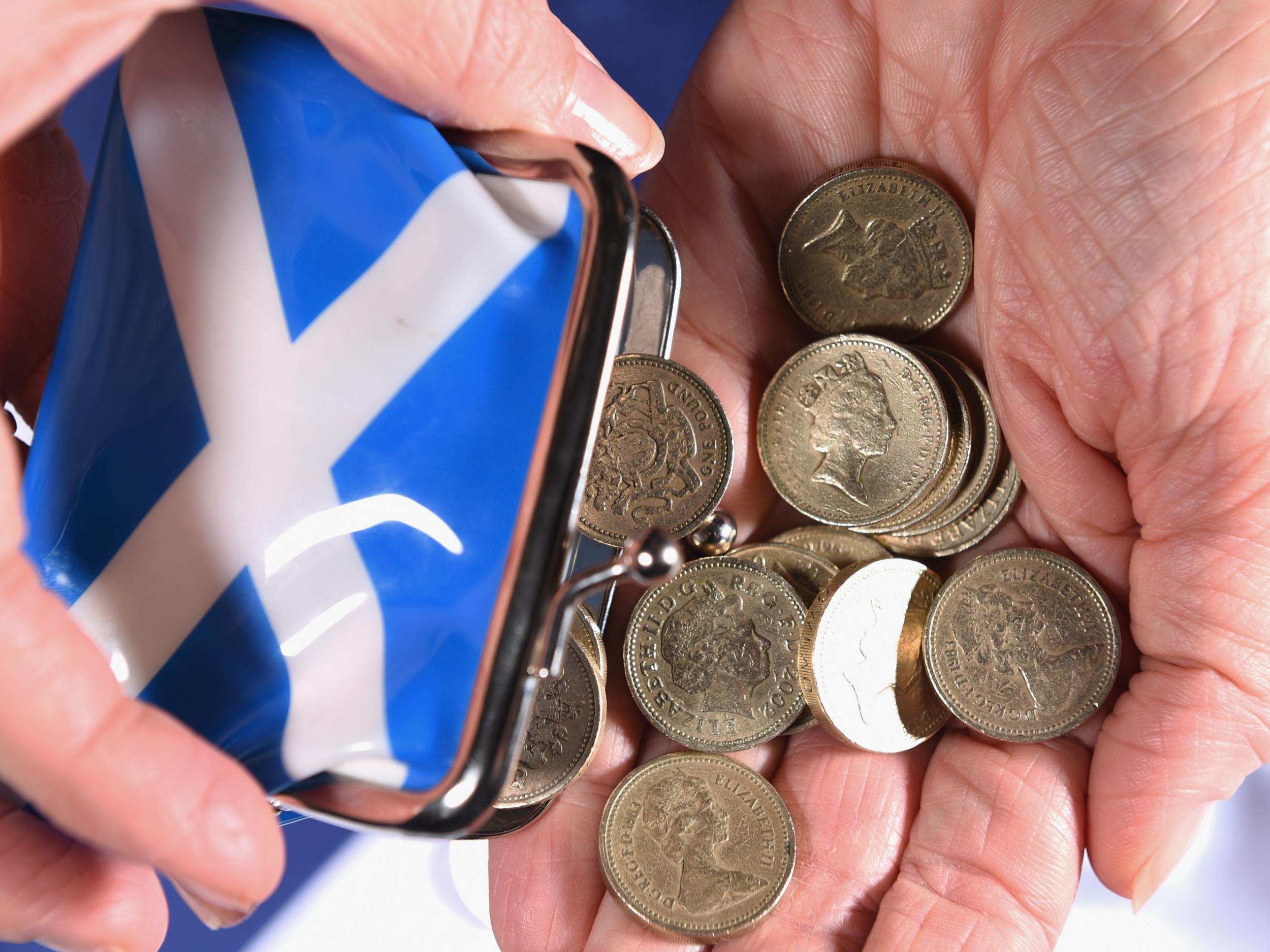Scottish income inequality surges as rich get richer
Campaigners say inequality will worsen following Brexit vote

As Scottish First Minister Nicola Sturgeon begins setting out plans for a second independence referendum amid economic uncertainty following the UK’s Brexit vote, official statistics show wealth disparity in Scotland is widening.
Scotland’s richest 10 per cent saw the largest increases in income over 2014/15, while the proportion of working households entering into poverty levels has increased, according to the latest figures from the Scottish Government.
The top 10 per cent saw incomes rise by 15 per cent more than the bottom 40 per cent combined, the report says. In 2013/14, the same group saw incomes rise by 12 per cent more.
The report says a move into part-time work has seen those in lower income brackets fall behind the trend for wage rises in the middle and the richest households.
The proportion of people in absolute poverty – lacking basic human needs like food and shelter – remained unchanged, though decreased slightly if housing costs were factored in.
Poverty Alliance director Peter Kelly told the Press Association: “This will be made worse following the UK’s decision to leave the EU and the economic uncertainty that this will create.
“All of those who care about the protection of rights and social justice must work together to ensure that impact of the vote to leave the European Union does not fall most heavily on those already living in difficult circumstances.”
The report says: “The proportion of people in poverty in working households increased in the latest year.
“The move into employment was largely into part-time work, especially for women, meaning that while people were in employment, they remained in poverty.
“In 2014/15, income inequality increased. The top 10 per cent of households saw the largest increases in income while the bottom 10 per cent saw no real change."
The report added: “This has stretched the income distribution, resulting in low-income households falling behind those in the middle and even further behind those at the top.”
Jamie Livingstone, head of Oxfam Scotland, told The Independent: “It is clear that not enough progress is being made on tackling poverty in Scotland. There are still over 940,000 people living in relative poverty after housing costs (AHC), the same number as 2013/14.
“Worryingly, the proportion of people experiencing in-work poverty is on the rise. In 2014/15, 58 per cent of working age adults in poverty (AHC) were living in working households, as were 66 per cent of children.
“These figures show that we must redouble efforts to tackle poverty and inequality in Scotland.”
Brexit reactions – in pictures
Show all 10He added: “The SNP manifesto included the commitment to establishing a Poverty and Inequality Commission. This body should be established as soon as possible and must be allowed to move beyond statements of concern to recommending and securing specific changes in policy.”
Subscribe to Independent Premium to bookmark this article
Want to bookmark your favourite articles and stories to read or reference later? Start your Independent Premium subscription today.

Join our commenting forum
Join thought-provoking conversations, follow other Independent readers and see their replies